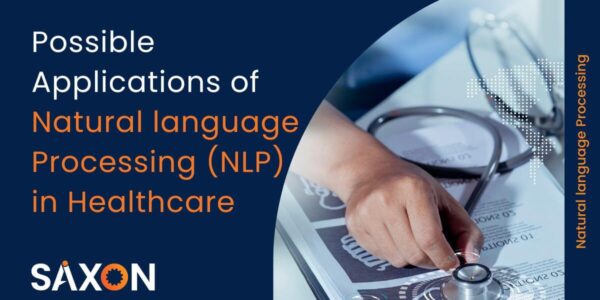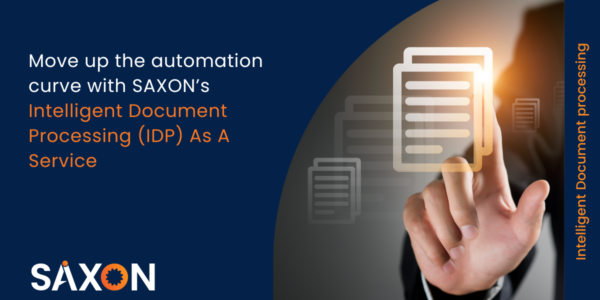As manufacturing organizations adapt to digital tools of any kind – manufacturing plants generate gigabytes of data in a data. During the pandemic, the shift in working environments and digitization efforts made enterprises data-intensive. The Digital Factory now replaces traditional manufacturing unit’. Most of the manufacturing production is now digital. If the factory is digitized, then the raw material is the new structured and unstructured data from the digital factory. This raw material needs to be turned into a finished product that defines the course of action in manufacturing operations.
While Digital Factory is about transforming production facilities with digital tools to operate the communications and processes, Industry 4.0 is more about machine-to-machine interactions driven by the latest technologies like IIoT, Robotics, AI and ML, automation, and cognitive computing. Let us see how data is being leveraged in the new-age smart manufacturing.
Car Manufacturer Tesla relies on real-time data to design better and safer cars. Connected cars with automated functionality are the new trend, and helping vehicles react to external conditions requires analyzing terabytes of video data. With the increasing demand for IoT, Global Industry 4.0 market is expected to reach USD 337.1 bn in 2028 at a CAGR of 16.4% during 2021-28.
Industry 4.0 – Key Value Drivers
What do you think are the main levers in Industry 4.0? With all the digital efforts, flexible production, efficient equipment utilization, supply chain effectiveness, and automating process seem to be the strategic business priorities. Focus on these areas will allow manufacturers to predict demand accurately, plan production react faster to changes, and accelerate their time to market. But if you look at all these areas, communication between all the systems seems to be the main ingredient to achieve any small success. This can be imbibed with machine-to-machine interactions and utilizing Machine Learning, AI, and predictive analytics. Let us now look at more details about these value drivers.
- Resource and Process Optimization – Enhancing processes for more speed or yield and optimizing material and equipment utilization is a win-win for manufacturers. More product output and increased revenue by utilizing digital tools enhance the competitive edge in most industries. Typical real-time process optimization for manufacturers can improve productivity by around 5%.
- Equipment Utilization – As the asset-heavy industries utilize expensive machinery, downtime and machine life are crucial in managing the overall costs. Every minute the machine stays idle results in revenue and capital expenditure loss. Predictive maintenance capabilities leveraging Industry 4.0 technologies can reduce unplanned downtimes and propose proactive maintenance schedules. Experts believe that predictive maintenance can reduce equipment downtime by between 20-50%.
- Workforce planning and Utilization – With more data from demand forecasting and various sensors across the digital factory, decision-makers can do workforce planning more effectively. Collaborative robots address labor-intensive and complex tasks, reducing wait times and improving workforce productivity.
- Product Quality – Rework and scrap seem to be another significant cost burden for manufacturers. With more control systems and sensors, real-time data analysis can reduce the rework and scrap in manufacturing operations. Technologies like Advanced Process Control and performance management solutions create more value and improve product quality.
- Supply chain and Inventory – Holding excessive inventory levels may increase the costs between 20-50%, primarily dependent on the industry and demand. Can we optimize supply chain and inventory levels? Leveraging multiple data sources and advanced AI and ML algorithms, solutions like demand forecasting, logistics management, and real-time supply chain optimization can reduce these high costs and capital.
- Equipment Maintenance – Equipment service costs seem to be another considerable overhead for manufacturers that drives the operational cost. Remote and Predictive maintenance solutions powered by IoT and sensors data can reduce maintenance costs between 10-40%.
As per Mc Kinsey, most manufacturers were stuck in the pilot trap for Industry 4.0 before the pandemic. Around 94% of the manufacturers now believe that Industry 4.0 helped them continue their operations and improve flexibility during the crisis. Data is the key, and being data-driven remains key in harnessing the potential of all the digital technologies through Industry 4.0.
The New Frontier of Digital Technologies for Smart Manufacturing
Smart manufacturing in Industry 4.0 is more about connected equipment, cognitive computing, data, and insights about people, machines, and materials. It relies heavily on automation, machine learning, real-time data analysis, and collaborative communication. Also, it is more about changing how goods are produced and supplied to the customers. Let me walk through the details about the technologies that enable continuous improvement initiatives:
- Industrial Internet of Things (IIoT) – Digital Factory is now a hub of sensors that collects data in real-time and facilitates rapid insights. The sensors and hardware are not limited to just machines but to people, processes, and other assets. Asset management, maintenance, remote monitoring, advanced process control, etc., are a few use cases among many with IoT.
- Big Data – When the data volumes are high from different sources like the customer, production, equipment, and process data, big data and analytics need to be leveraged to process and derive insights rapidly.
- Predictive Analytics – The most powerful aspect of the digital factory is to predict the future related to equipment maintenance, workforce planning, resource planning, and inventory optimization. Most of the data collected from various sources remain orphaned without predictive analytics.
- AI and ML – When we already spoke about predictive analytics, do we need to discuss AI and ML in detail? Understanding the customer is no longer left at the value chain’s end. A lot of unstructured data need to be analyzed for various use cases to provide better insights for decision-makers. Demand forecasting, customer analysis, and service feedback are a few among many that Machine Learning algorithms can address.
- Automation – Industrial automation is slightly different to process automation in other sectors. As manufacturers utilize labor for many activities, many complex tasks are replaced by Robotics. Investments in automating labor-intensive tasks are also significant over the past future. All this does not imply that manufacturers are not concerned about workflow automation. RPA has its use cases in invoice processing, sales orders, purchase orders, and more.
- Cloud Computing – With data volumes growing massively, accessibility and storage issues need to be addressed. Cloud technology offers manufacturers with on-demand storage capacities and faster access to the data when required.
What else?
- Paperless – Every process in the digital factory will be digitized, eliminating manual data entry and enabling a digital data-driven culture.
- Connected enterprise systems – Nonetheless, when volumes of data are generated, it is on the onus of manufacturers to eliminate silos in the processes. The data from the ERP systems, shop floor locations, and SCADA systems must be integrated, and a single source of truth is required.
- Real-time Insights – To enhance efficiency everywhere, manufacturers need to access data in real-time and derive insights from them to make more informed decisions.
The apparent reason for manufacturers to adapt to Industry 4.0 technologies is to enhance efficiencies everywhere. But with the pandemic, this perception has changed. Manufacturers are now looking for more flexibility and being resilient to external changes. The agility and innovation bought in by all these changes can prompt an uptick in customer satisfaction. As new challenges emerge, manufacturers need to look out for continuous improvement initiatives.
Do you want to know more about implementing these latest technologies in manufacturing? Please reach out to our experts for more information.
















